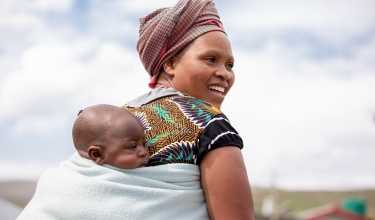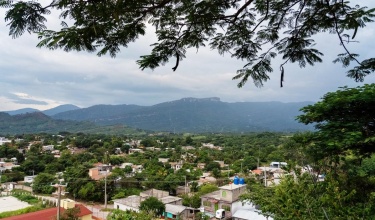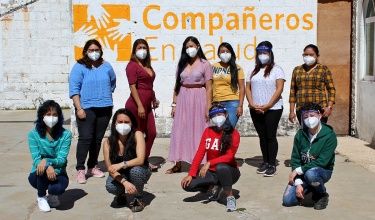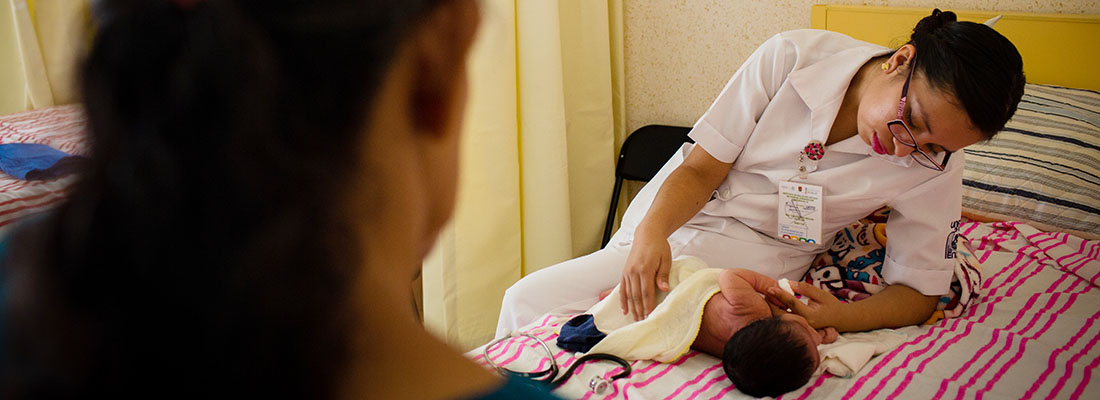

Mexico
Mexico
Mexicans have access to universal health coverage but reliable, quality health care is hard to come by—especially in remote, rural areas of Chiapas.
Since 2011, Partners In Health has staffed and supported 9 rural primary care clinics, a birthing center, and a community hospital in the coffee-growing, Sierra Madre region of Chiapas—one of the most marginalized states in the country, where more than half of residents live in poverty.
For years, Chiapas residents lacked reliable access to health care; clinics could be miles away from residents’ homes and often lacked proper supplies and support.
PIH, known locally as Compañeros En Salud, has changed that dynamic. Driven by our commitment to patient-centered care and deep, long-lasting engagement with communities, PIH is training the next generation of clinicians and improving access to quality health care in Chiapas—proving that injustice has a cure.
Our Impact
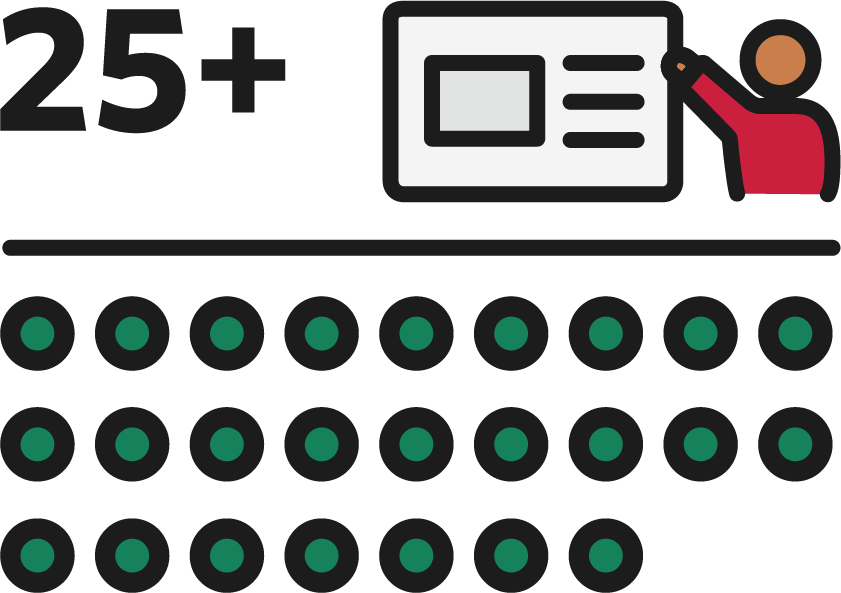
Each year, more than 25 first-year clinicians trained at PIH-supported facilities.
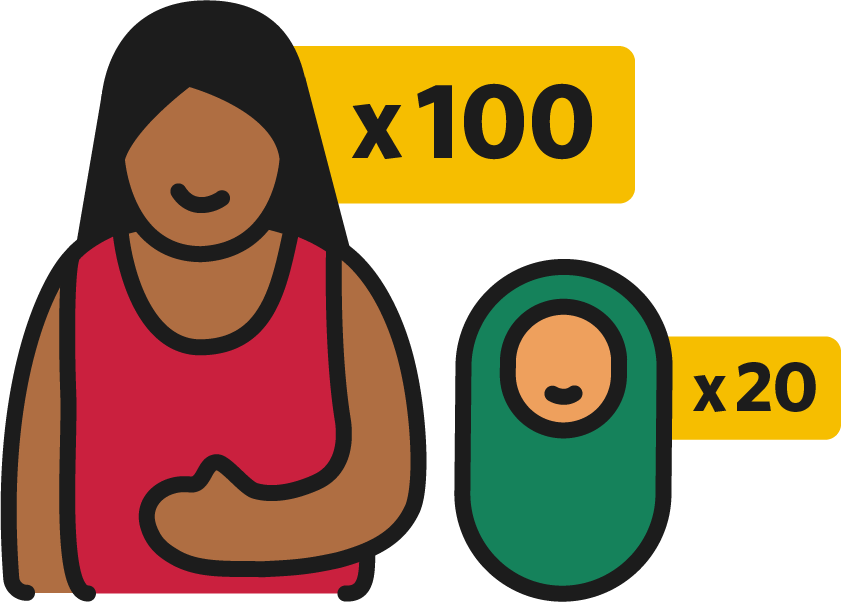
Monthly average of 100 expectant mothers receiving care and 20 deliveries at Casa Materna.
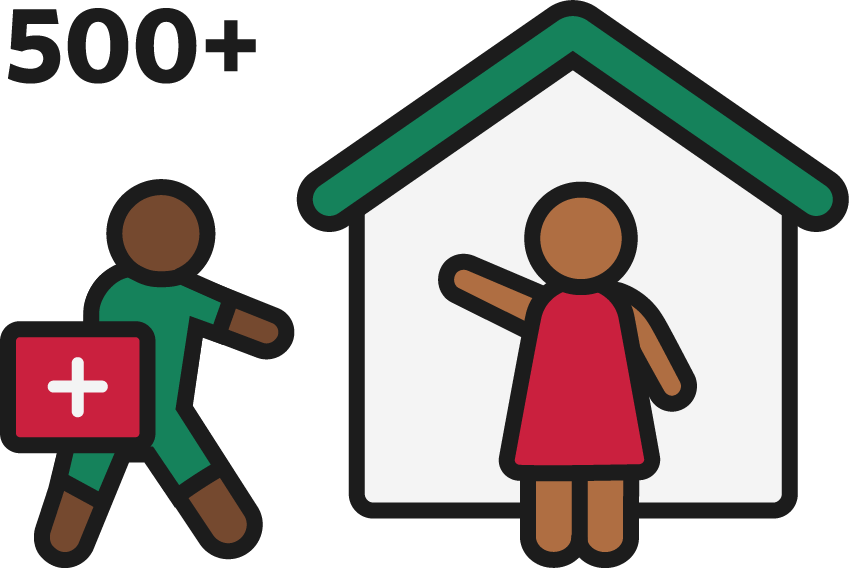
Community health workers provide more than 500 home visits each month. .
Pasantes
One of our key programs in Chiapas is the pasantes program. We recruit early career Mexican clinicians to work in remote public facilities, furthering our impact and their professional development.
In Mexico, health care services graduates are required to complete one year of social service. PIH offers first-year doctors and obstetric nurses, or pasantes, the opportunity to fulfill this requirement and gain valuable professional experience, including mentorship and training. Pasantes are often so impacted by the program that they choose to remain past their required year to help supervise the next generations of recruits.
Maternal Home
Chiapas has among the highest maternal mortality rates in Mexico. Most women in the area give birth at home with the help of traditional midwives. But complications can arise during birth due to structural barriers – including distance to the nearest hospital, road conditions, and lack of transportation – putting mothers and newborns in life-or-death situations.
Recognizing the need for improved maternal care, PIH partnered with the Ministry of Health to open a birthing center, or Casa Materna. At Casa Materna, expectant mothers receive prenatal care, lactation advice, and a place to stay before, during and after their deliveries. The home is staffed with first-year obstetric nurses, who are supervised by obstetric nurse supervisors. At the nearby PIH-supported hospital, a doctor and gynecologist are available to support in case complications arise. Traditional midwives are also welcomed as members of the delivery team, based on the expectant mother’s preference, all of which allows for a marriage of modern medical science and traditional forms of care. Extending our model, the second Casa Materna will open in the municipality of Siltepec, Chiapas opened in April 2023.
Community Health Workers
PIH’s community health worker program in Chiapas – similar to those in other countries – empowers local residents to lead and ensures that patients receive the care they need.
As part of this program, PIH recruits and trains local residents to serve as bridges between their neighbors and the clinic. Community health workers visit their patients regularly to answer their health-related questions, ensure they take their medication, and accompany them during clinic appointments. The program is especially crucial for patients who live in remote areas and cannot easily access the clinic.
Complex Care
Not all patients can receive the treatment they need at PIH-supported clinics in Chiapas. Some require complex care and must travel to specialized hospitals several hours away. PIH accompanies these patients throughout the process – from scheduling and accompanying them on appointments to providing financial support throughout their stay near the hospital.
Mental Health
In the Chiapas communities where we work, patients face a variety of mental health challenges. We respond with a patient-centered approach to care.
Our pasantes and community health workers receive monthly trainings on best clinical practices for mental health diagnosis and treatment. Pasantes deliver mental health care in the primary care setting while supervised by a general physician and clinical psychologist. During house calls, community health workers use a psychotherapeutic intervention to treat depression and anxiety. They also provide basic mental health education, monitor treatment adherence, and refer patients to care.
Featured Mexico Videos
To learn more about Compañeros En Salud, check out their website by clicking the button below:
